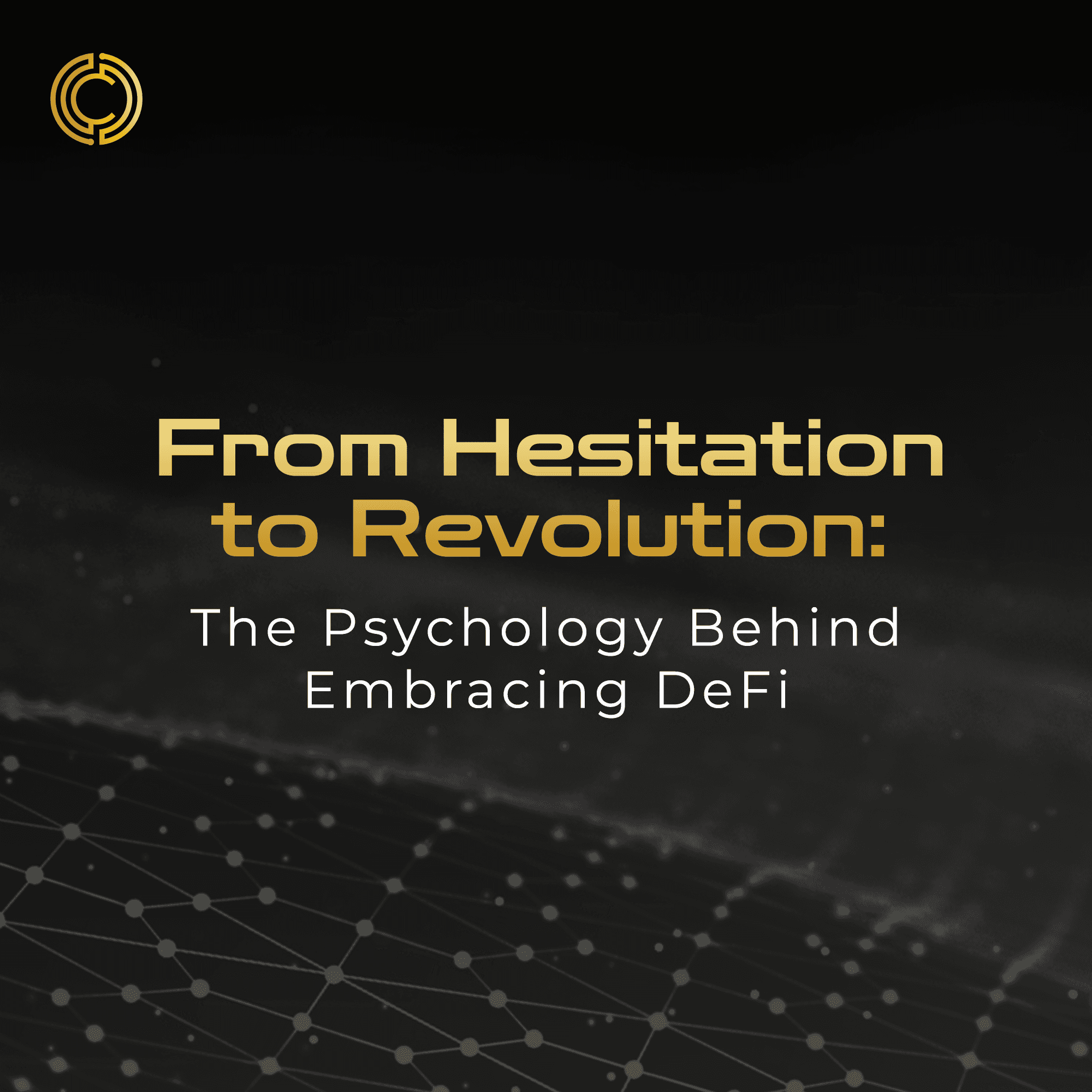

The mass adoption of any technology, including decentralized finance (DeFi), relies on understanding the psychological principles that drive human behavior and decision-making. To successfully transition from traditional finance to DeFi, it is essential to comprehend the factors that influence the adoption and diffusion of technological innovations. In this blog post, we will explore key psychological principles from behavioral economics, cognitive psychology, and social psychology that are pertinent to DeFi’s mass adoption.
Perceived Value and Utility:
The perceived value and utility of a technology are crucial determinants of adoption. Individuals are more likely to adopt a technology when they perceive it as valuable and useful in addressing their needs or solving existing problems. To drive DeFi’s mass adoption, it is important to communicate and emphasize the benefits it offers, such as lower transaction costs, increased financial inclusivity, and enhanced control over personal finances. Highlighting these advantages can influence individuals’ perception of the value and utility of DeFi, making them more likely to adopt it.
Trust and Security:
Trust is a fundamental psychological principle that significantly impacts the adoption of new technologies. Individuals need to trust that their financial transactions and personal data will be secure in the decentralized ecosystem of DeFi. To instill trust, it is crucial to emphasize the security measures in place, such as encryption, decentralized governance, and transparent protocols. Additionally, leveraging social proof, through testimonials and positive user experiences, can enhance trust by demonstrating that others have successfully used DeFi without encountering major security issues.
Cognitive Ease and Simplicity:
People are more likely to adopt a technology if it is perceived as easy to use and understand. Cognitive ease, the mental effort required to process information, plays a vital role in technology adoption. To facilitate DeFi’s mass adoption, user interfaces should be intuitive, user-friendly, and designed with simplicity in mind. Minimizing cognitive load by providing clear instructions, intuitive navigation, and interactive tutorials can increase individuals’ comfort and confidence in using DeFi platforms.
Social Influence and Network Effects:
Social influence and network effects play a significant role in the adoption of technological innovations. Humans are social creatures who often look to others for guidance and validation. Leveraging social proof, such as highlighting the growing community of DeFi users, can create a sense of belonging and encourage adoption. Additionally, fostering network effects by incentivizing early adopters, encouraging referrals, and promoting community engagement can create a positive feedback loop, leading to wider adoption as more individuals join the ecosystem.
Overcoming Status Quo Bias:
Humans tend to exhibit a bias toward the status quo, preferring familiar options over new ones. Overcoming this bias requires highlighting the limitations and inefficiencies of traditional finance while emphasizing the benefits and opportunities provided by DeFi. Framing the adoption of DeFi as a positive change, an opportunity for growth and empowerment, can help individuals overcome their status quo bias and embrace the decentralized paradigm.
Education and Familiarity:
Educating individuals about the principles and workings of DeFi is vital for mass adoption. Lack of understanding and familiarity can be significant barriers to adoption. Providing accessible educational resources, tutorials, and real-world examples can demystify DeFi and empower individuals to make informed decisions. By increasing familiarity and reducing uncertainty, individuals can overcome resistance to change and embrace the potential of DeFi.
Achieving mass adoption of DeFi requires a deep understanding of the psychological principles that influence human behavior and decision-making. By leveraging principles such as perceived value, trust, cognitive ease, social influence, overcoming status quo bias, and education, the path to widespread adoption becomes clearer. By addressing psychological barriers and emphasizing the benefits and opportunities of DeFi, we can pave the way for a decentralized financial future that empowers individuals and unlocks new possibilities for global financial inclusion.







